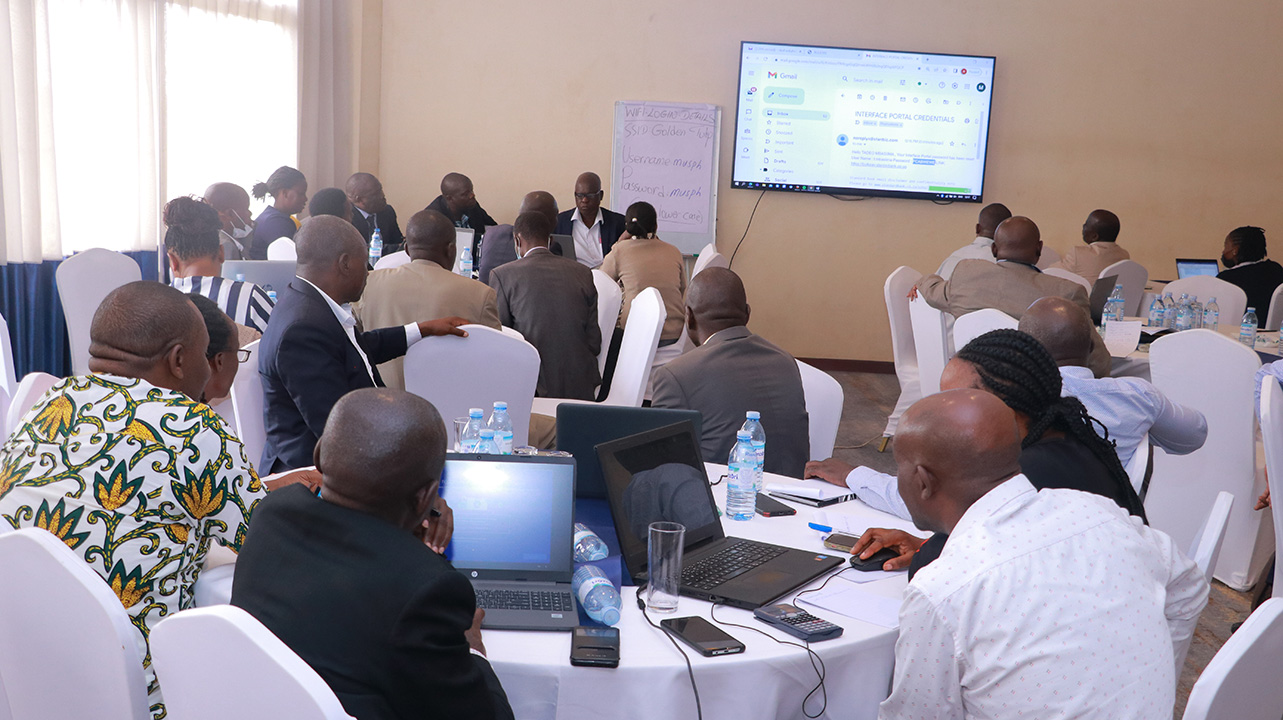Makerere University School of Public Health (MakSPH) through the Digital Health Payment Initiative and Research in Africa project (DHPI-R), in collaboration with Uganda’s Ministry of Finance, Planning and Economic Development, and the Ministry of Health has built the capacity of the district teams on how to conduct electronic payments for campaign health workers in their respective districts.
With funding from the Bill and Melinda Gates Foundation, the DHPI-R project will conduct a Randomized cluster Trial (RCT) study titled; “Effectiveness of mobile money payments to the vaccination campaign health care workers on polio vaccination campaign coverage and quality: a cluster randomized controlled trial.”
During the study, the project will be comparing vaccination coverage in areas where campaign health care workers are paid using mobile money versus in cash, as well as comparing the motivation, satisfaction, and performance of vaccination health care workers in areas where they are paid using mobile money versus in cash is also one of the forecast objectives.
The study will also explore how gender norms and relations influence health workers’ responses to payment systems (mobile money versus cash payments).
This is in addition to how these gender norms and relations affect the health workers’ performance and motivation in polio vaccination campaigns. The revelation was made during a day-long training held at Golden Tulip Hotel, Kampala as a follow-up to an August 23 virtual training electronic payment.
At least 25 intervention districts have been randomly selected across the regions of Uganda. From each intervention district, the project invited and trained four (4) representatives that included the Chief Administration Officer, District Health Officer, Chief Financial Officer, and the Sector/ Health accountant.
The project and study team in appreciation of the role played by the district teams in influencing electronic payment sought to conduct a hands-on training.
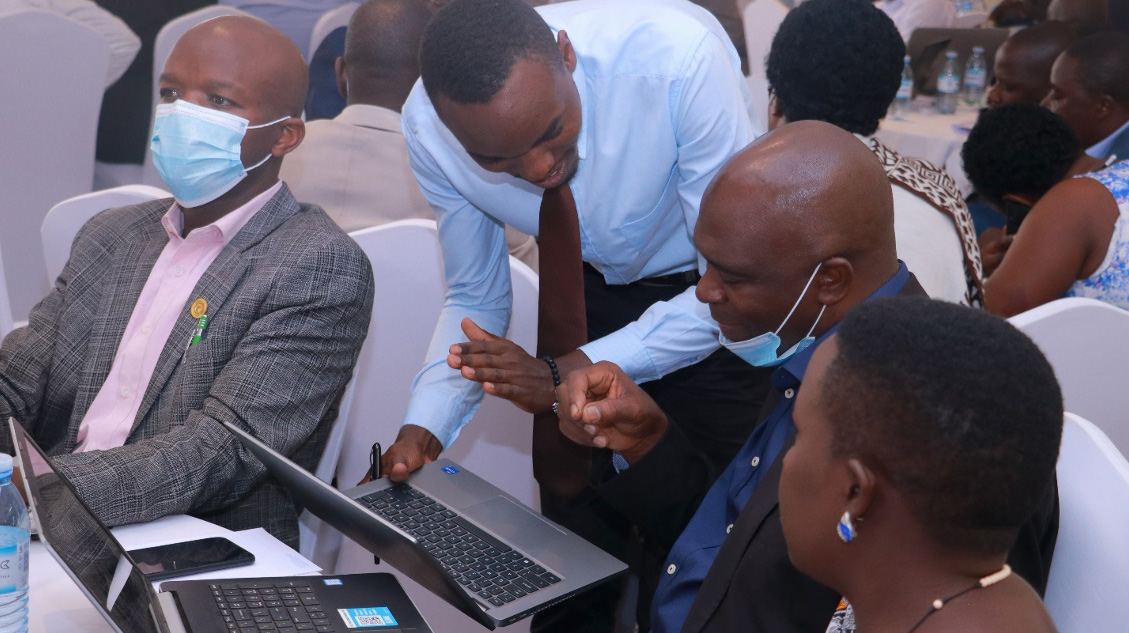
The government of Uganda strives to have electronic transactions and several of the institutions of government have embraced e-payments and has through the Ministry of Finance and the Ministry of Health been promoting electronic transactions with a view to improving transparency and accountability as well as efficiency.
On this premise, the DHPI-R project will through this study scientifically evaluate the benefits of e-cash in comparison with the traditional cash transaction. Additionally, this project will scale up the use of digital payments amongst campaign health workers.
“We are aware that in the past people used to depend on cash-based systems for payments that the world has now moved on and now everyone is going digital, even if you don’t want to be digital you are forced to go digital because there is no longer room for remaining in the cash mode,” said Dr. Elizabeth Ekirapa Kiracho, the Anglophone hub Director on the DHPI-R project.
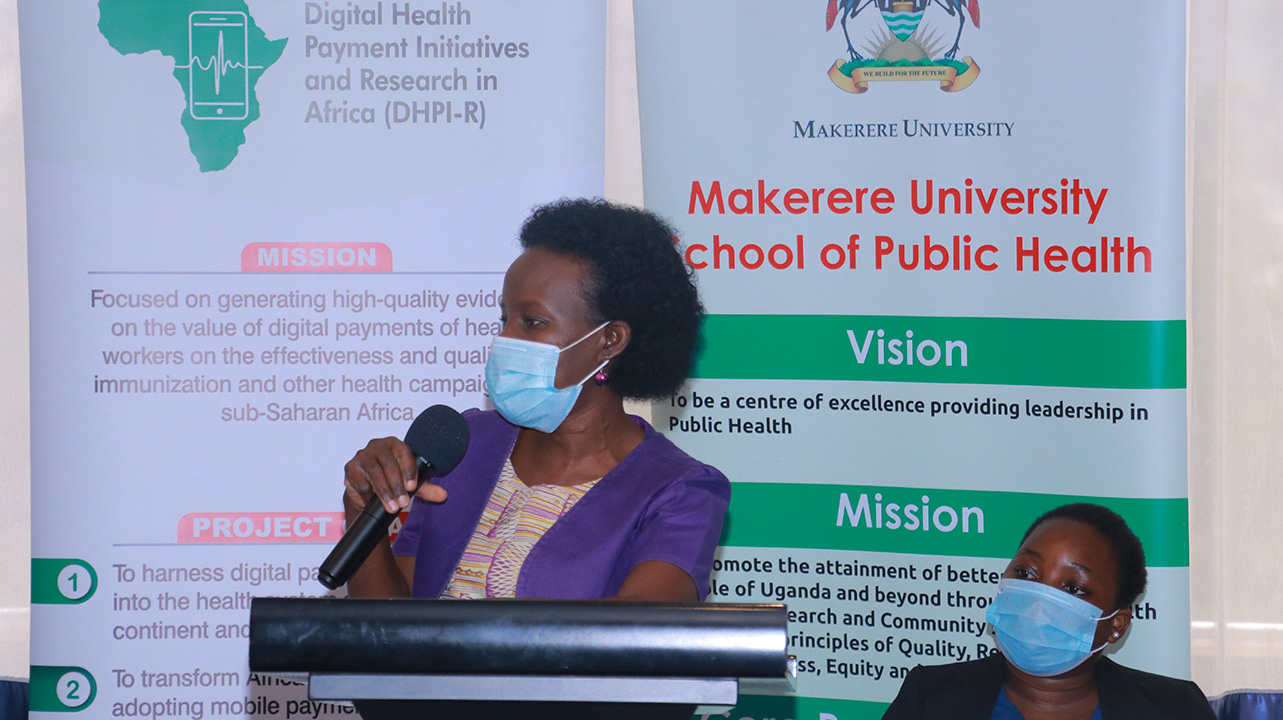
Dr. Ekirapa who is also a senior lecturer and a health economist at Makerere University School of Public Health notes; “I am informed that here in Uganda as well government is pushing districts to move towards cash-based payments.”
Similarly, the Bill and Melinda Gates Foundation is particularly interested in looking at countries in Africa enhancing their capacity to use digital payments which is of benefit to health-related activities such as immunization campaigns.
“There have been campaigns like the distribution of mosquito nets and you have hundreds of people to pay and we have been doing it by cash which presents a lot of risks like theft, delay, and fraud so there are a lot of challenges associated with cash payments, so digital payments have been found to address some of these encounters,” Dr. Ekirapa further observes.
Participants that had interfaced with the electronic payment system shared their experiences with some raising concerns that have kept them using cash such as lack of system databases of health workers and VHTs, the delays in the verification process, inadequate skills like using excel, gender issues during the electronic payment, and network issues that sometimes delay receipt notification when the money is uploaded on the e-cash platform.
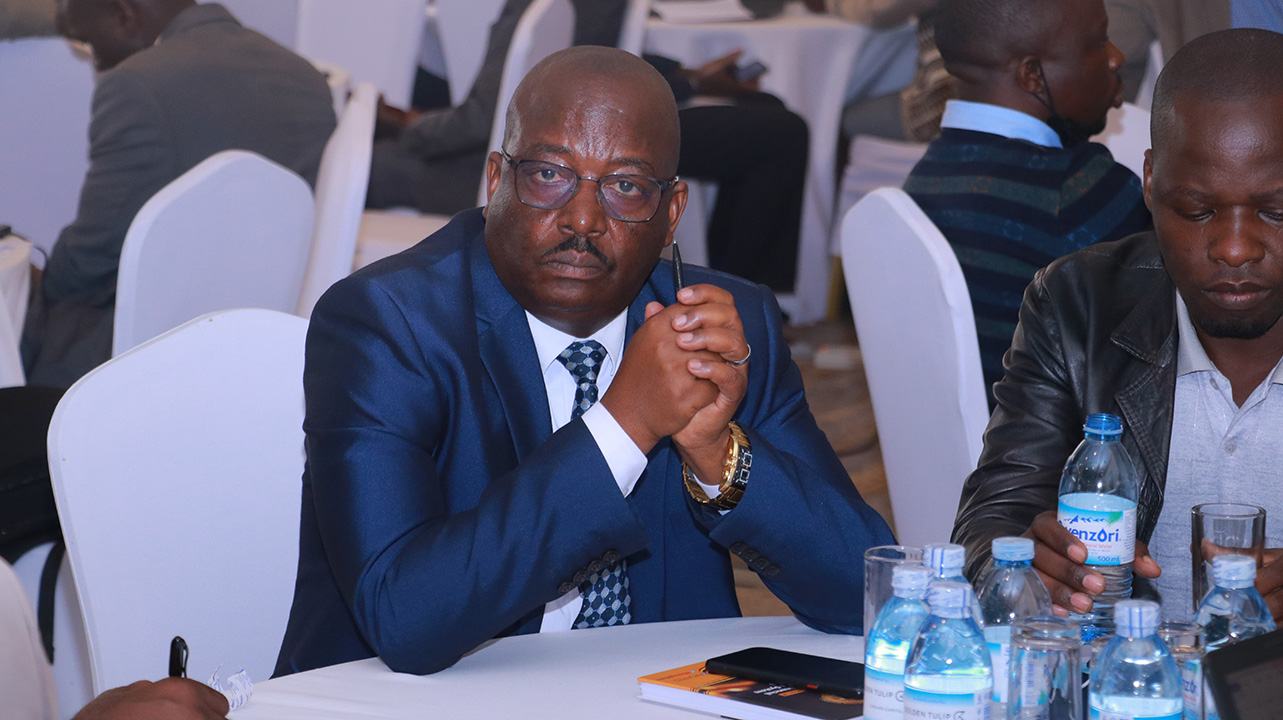
Mr. Mathias Ndifuna, the Chief Administrative officer Kagadi District Local Government highlighted the issue of coordination between the Local Governments and the Ministry of Finance.
"It defeats logic when we send information to you finance people and you decide to stay silent,” Ndifuna said.
Mr. Tadeo Mbasiima the Chief Finance Officer, Kabale district advised on random sampling to confirm ownership of the telephone numbers during the verification process. “Verification is a big issue here, and I believe it affects and disturbs everyone who is here, the verification process starts with paperwork before uploading on the system,” said Mbasiima.
To address some of the challenges, Mr. Ronald Rutaremwa, a Senior Accountant from the Ministry of Finance, Planning and Economic Development in a practical session, demonstrated how one could operate the electronic payment system.
Together with a team of Finance ministry officials, Mr. Rutaremwa explained the various roles the district teams have to play during the course of electronic cash payments such as the role of the filer, verifier, and approver. The finance team also helped districts register and subscribe to the Integrated Financial Management Information System (IFMIS) system.
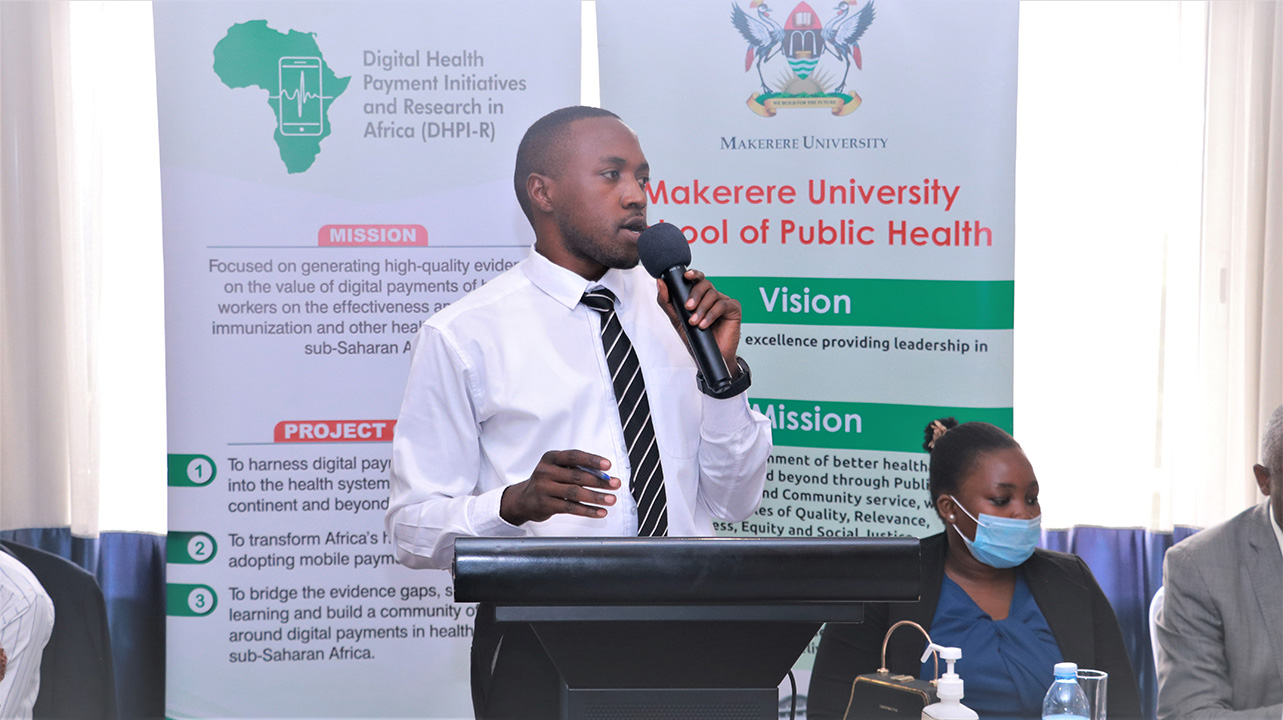
Dr. Victoria Nankabirwa, an epidemiologist at MakSPH and RCT study Principal Investigator thanked the participants for their time and encouraged them to put into practice the skills acquired during the training. “Definitely we want to see the difference in areas paying with cash and those using electronic payment whether there will be health worker motivation, improved performance, and satisfaction in the upcoming polio campaign,” she said.
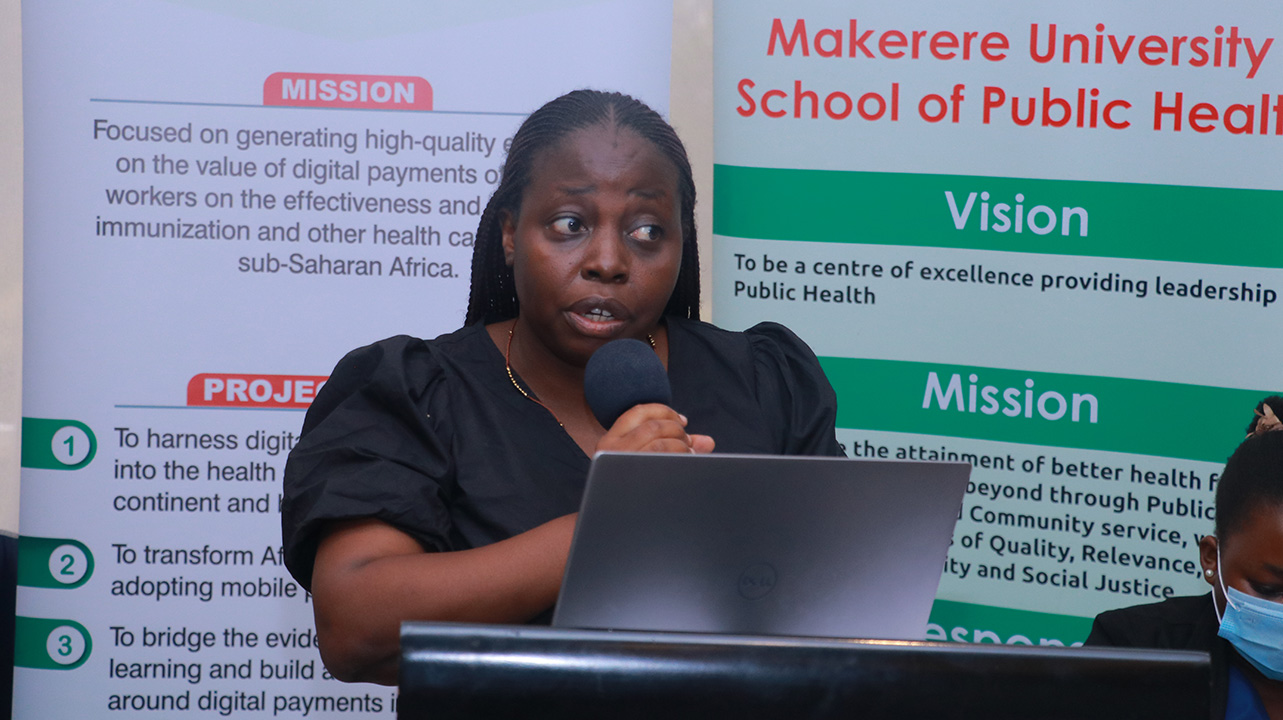
Digital/electronic payment has been behind some of the successful campaigns in Africa for example the Ebola crisis in Sierra Leon and at the height of COVID-19, it’s a mode of payment that has been used to pay frontline workers globally.
By Judith Grace Amoit
